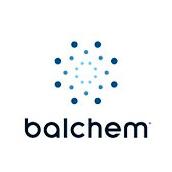How the stress can affect calf health & performance
Published: April 6, 2018
By: Melina Bonato and Liliana Borges (P&D, ICC Brazil)
The beef production goal is to have healthy animals that can achieve the maximum genetic potential with less cost. The animal health is not just related to diseases caused by a pathogen agent or metabolic/physical problems but also caused by stress factors. The external stress is defined as “the result of exposure to a situation or environment that is not normal for an animal.” In beef cattle production, the handling and transport can be the most stressor sources for the animals. According to Grandin (1997), the animals can suffer psychological (restraint, handling, and novelty) or physical stresses (hungry, thirst, fatigue, injury and thermal extremes).
The great part of producers/farmers buys calves from different places/properties even states. When these newly calves arrive the common signs of stress are thirst, hunger, fatigue and scared; also, the arrival in a new environment with new social interaction on the unfamiliar group. The results are a series of endocrine responses that directly affects the metabolism interfering with the immune system, health, growth, reproduction, animal welfare and meat quality (Bova et al., 2014).
The mortality and morbidity, no rarely, are high in this scenario and the death losses, medicine and veterinary costs and lower production indexes are a reality. The ideal situation is to obtain the animals from the same farm and maintains them in the same group, provide water and feed with high quality and palatability with easy access, avoid unnecessary handling and different people, etc. (Alberta Feedlot Management Guide, 2000). The use of feed additives that can help the rumen flora, strengthening the immune system and decrease contamination of pathogens can also collaborate with the general health and animal response to face the problem.
The yeast has been widely used in ruminant’s nutrition as a functional feed additive, and there is extensive literature proven its benefits. The RumenYeast® (ICC Brazil Company) is pure Saccharomyces cerevisiae yeast which undergoes through autolysis and contains the fermentation soluble solids from the media and the internal cell content. The final product contains vitamins, peptides, free amino acids and functional carbohydrates such as MOS and β-glucans. A trial was conducted to understand the benefits of RumenYeast® over newly arrived beef calves health and performance.
This trial was conducted at a commercial farm in Texas with the support of Texas A&M University (data not published). A total of 100 beef heifers with an initial body weight of 258.95 ± 17.46 kg were divided into two treatments: Control group and RumenYeast® supplementation (9 g/head/day). The animals were housed in 20 pens (6 x 6 m) of 5 animals per pen. A local cattle buyer purchased the animals with the goal of having the type and same conditions as the typical market in northeast Texas. The animals were delivered to the research facility in three separate groups during one week. Once they arrived, the farm protocols for injections (Bovine Respiratory Disease Complex, Clostridium Complex) and deworming were applied.
It is important to mention that during the trial (6 weeks) there were significant temperature and rainfall fluctuations which increase stress level in cattle. The animals background ranged widely, from having obviously been treated (vaccinated, etc.) to cattle, which had never been handled before.
The cattle were fed three times a day with 3.17 kg/head/day of a commodity blended feed and increasing amounts of Bermuda grass until intakes reached 1% of daily offered feed was refused. Feed refusals were collected daily, and body weights were measured weekly.
The voluntary intake did not change between the treatments (P>0.05). However, both treatments increased over time (Table 1). We speculated that the high forage composition of the diet and the ability of the cattle to sort longer forage particles might have resulted in the lack of variation among treatments. Moreover, environmental conditions (i.e., periods of high rainfall, temperature variations, excessive mud) may have increased the caloric demand of the animals, thus reducing their ability to gain weight effectively.
Table 1. Daily voluntary DM intake and average daily weight gain

*Means were considered to be different when P<0.05.
Medicinal costs, mortality, and morbidity rates do not show statistical differences (P>0.10). However, based on observations, the cattle that consumed diets supplemented with RumenYeast® tended to respond better to medical treatments compared to control group (P>0.10) regarding reducing mortality and morbidity. Also, economic data of cattle fed with RumenYeast® indicated a tendency in the improvement of the health and economic performance when compared to control group (Table 2).
Table 2. Health results and costs during the 42 days evaluation

1Mortality of the group and number of animals lost. 2Morbidity: all exhibiting cattle morbidity could subsequently be classified as chronics. 3Initial value of $742.00/hd. 4Medical and labor costs for each animal were approximately $30.00 $/hd/medication and 20 $/hd/labor. 5Considering all costs and dividing per head of the herd. *No statistical differences were found (P>0.10).
We speculate that even though statistical inference could not be obtained from these data, the RumenYeast® supplementation appears to increase immune function due to the findings on health parameters and a numerical decrease in mortality and morbidity, and response to treatments these cattle. This potential immune response improvement allows a quicker recovery when the animals are treated leading to fewer re-treatments. Consequently, this results in production costs reduction and labor requirements for the RumenYeast® supplemented cattle.
Modulate and support the rumen flora to speed up the digestion of cellulose and hemicellulose, stabilize the rumen pH under conditions of feed or caloric stress, and increase the production of volatile fatty acids are the benefits expected with RumenYeast® supplementation. The presence of the yeast cell wall rich in β-glucans and MOS will help in strengthening the immune system and control pathogens contamination in the gut.
The key factor is to associate the adequate handling (as mentioned previously) and transportation, to avoid unnecessary stress to the animals, with high-quality feed available, nutritional strategy, clean environment (best as is possible), avoid overcrowding and provide shade and ventilation. The RumenYeast® supplementation is also a feasible strategy to help is this very high challenge period.
References
Alberta Agriculture Food and Rural Development and Feeder Associations of Alberta. Alberta Feedlot Management Guide. Animal Welfare section, Second Edition published September 2000.
Bova et al. Environmental Stressors Influencing Hormones and Systems Physiology in Cattle. Reproductive Biology and Endocrinology 2014, 12: 58.
Grandin, T. Assessment of Stress During Handling and Transport. Journal of Animal Science 1997, 75: 249-257.
Authors:
Join to be able to comment.
Once you join Engormix, you will be able to participate in all content and forums.
* Required information
Would you like to discuss another topic? Create a new post to engage with experts in the community.
Create a post15 de octubre de 2018
The study seems so important and well conducted. The aims and the parameters dealt with (mortality, morbidity, beef heifers performance and stress factors effects) have great justifiable grounds. I would suggest using lower weights, studying a wide range of stressful factors besides the natural ones, and increasing the trial periods. Thank you so much for your great efforts for reducing the stress factors effects to optimize and maximize beef cattle production and efficiency.
Dr.Khazel (Ph.D..Animal Breeding and Genetics).






